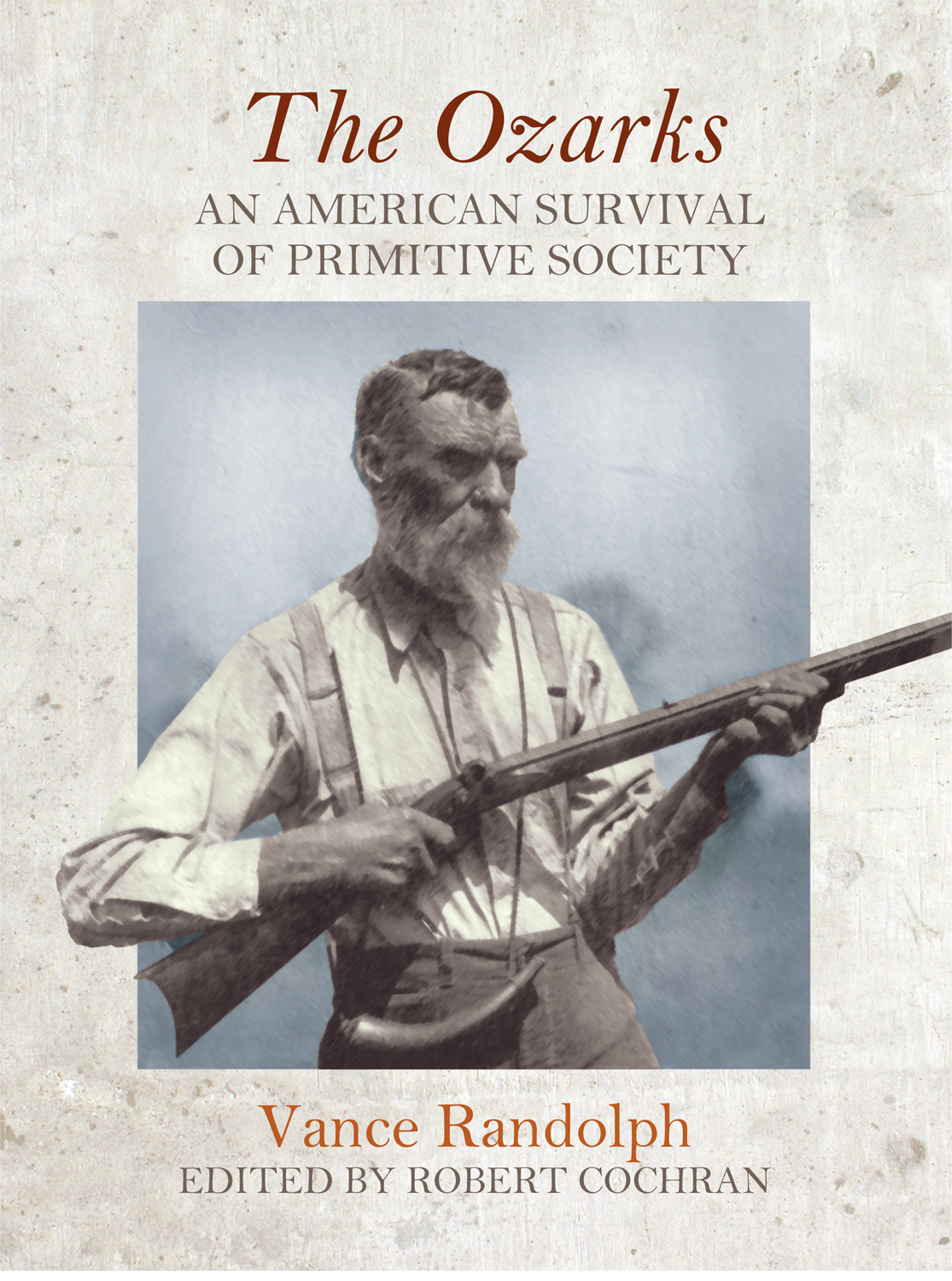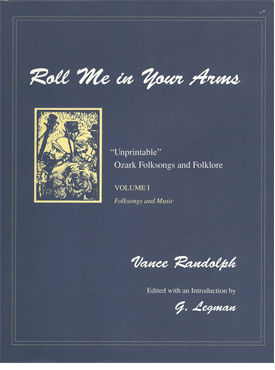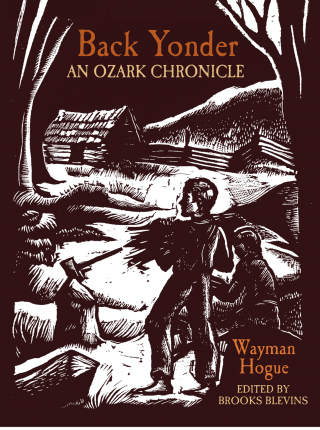Vance Randolph was perfectly constituted for his role as the chronicler of Ozark folkways. As a self-described “hack writer,” he was as much a figure of the margins as his chosen subjects, even as his essentially romantic identification with the region he first visited as the vacationing child of mainstream parents was encouraged by editors and tempered by his scientific training.
In The Ozarks, originally published in 1931, we have Randolph’s first book-length portrait of the people he would spend the next half-century studying. The full range of Randolph’s interests—in language, in hunting and fishing, in folksongs and play parties, in moonshining—is on view in this book that made his name; forever after he was “Mr. Ozark,” the region’s preeminent expert who would, in collection after collection, enlarge and deepen his debut effort.
With a new introduction by Robert Cochran, The Ozarks is the second entry in the Chronicles of the Ozarks series, a reprint series that will make available some of the Depression Era’s Ozarks books. An image shaper in its day, a cultural artifact for decades to come, this wonderful book is as entertaining as ever.
Vance Randolph was the author of many books on Ozark culture, including, in addition to The Ozarks, the bestselling Pissing in the Snow and Other Ozark Folktales, Roll Me in Your Arms: “Unprintable” Ozark Folksongs and Folklore, Volume I, and Blow the Candle Out: “Unprintable” Ozark Folksongs and Folklore, Volume II.
Robert Cochran is professor of literature at the University of Arkansas and the author of several books, including Vance Randolph: An Ozark Life.
“In his invaluable and instructive introduction, Robert Cochran mentions that Randolph in fact had aspired to be a cultural anthropologist, in the holistic vein of Margaret Mead writing Coming of Age in Samoa, but had been rejected by Boas. In re-issuing Randolph’s 1931 work, Cochran, as well as Brooks Blevins, the Chronicles of the Ozarks series general editor, could be seen as simply promoting their own interests in Ozarkiana. But the significance of this work goes well beyond any regional constraints. Despite Randolph’s obvious Tylorian bias against the staying power of ‘primitive’ society, any folklorist reading his work would comprehend more fully the power of folklore’s raw material. Our humanity in all its possibilities, good and bad and indifferent, vibrates in the narrative that people construct of their lives, through their actions, words, and beliefs. Collectors like Randolph understood that, and were able to transmit what they collected through their own superbly crafted narratives.”
—John Wolford, Journal of Folklore Research, August 2018
“Anything you can do to keep The Ozarks alive and in print is a gift to folklorists and regional writers. Randolph was a proud Ozarker and a fine, zesty writer, a wit, a charmer. The Ozarks is maybe his most enduring treasure. We need to be reminded how this rascal of a writer held forth on his favorite subject.”
—Roger Abrahams, author A Singer and Her Songs: Almeda Riddle’s Book of Ballads

In the preface to The Ozarks: An American Survival of Primitive Society, the first nonfiction book on the people of the Ozark region, Vance Randolph confessed that he sought to entertain general readers with stories of a place divorced from the march of time, its inhabitants a people whose isolation and hidebound dedication to the ways of their ancestors rendered them exotic relics in an age of electricity, radios, and automobiles. Randolph knew he was presenting to his audience an incomplete picture of his adopted region, a place more complex and heterogeneous than even he could appreciate. Yet, his decision to essentialize Ozark people and their culture set a precedent that other chroniclers of the Ozarks would dutifully and willingly follow. Whether infused with a romantic fascination for ancient ballads, fox hunters, and weaving grannies or informed by a modernist critique of the intellect-stultifying poverty and backwardness of the benighted hill country, these chronicles all agreed that “the average urban American” who visited the region would feel “himself among an alien people.” The tens of thousands of readers of these books were almost certain to convert generalizations—and generations—into regional stereotypes.
The Ozark books of the Depression era played a crucial role in establishing the simplistic and reductionist stereotypes, both positive and negative, of Ozarkers and the Ozarks. It is for that reason that the University of Arkansas Press has launched the Chronicles of the Ozarks, a reprint series that will make available some of the era’s Ozark books with introductions and editorial notes that place each book and its author against the backdrop of the era and its popular assumptions and myths of life in the Ozarks. While it is important to understand the books’ flaws and misconceptions in the interest of a fuller understanding of the development and persistence of regional stereotypes, it is also important to remember that these books were written to entertain an audience of general readers and that none of them was meant to be a scholarly, scientific study. It is our hope that you will find them as entertaining as did readers in the 1930s and 1940s. It is also our hope that you will read them with an appreciation for the image-shapers that they once were and for the cultural artifacts that they have become.





